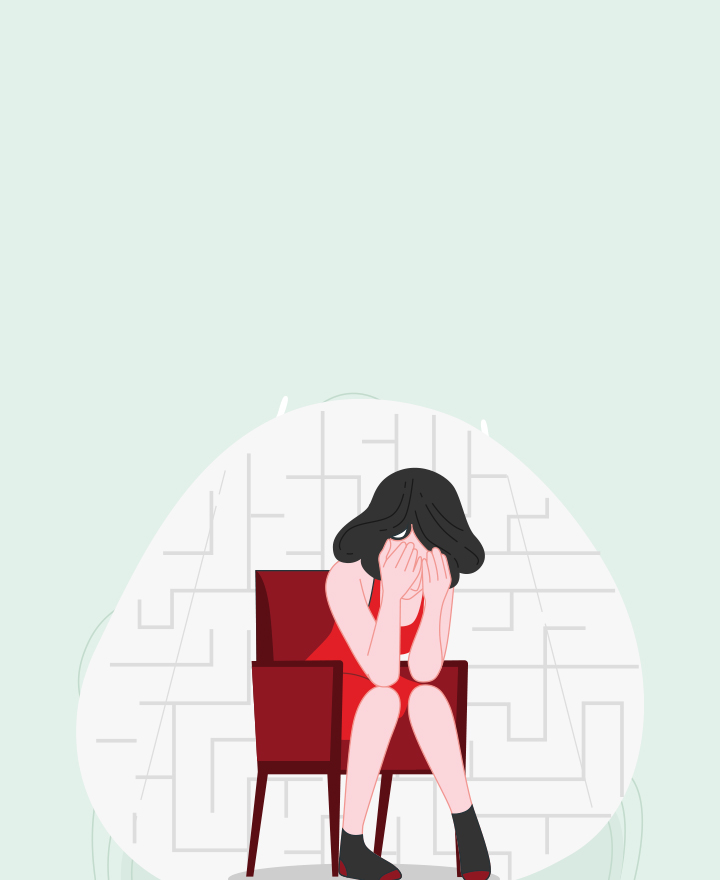

Can Rainy Days Make Your Head Feel Dizzy?
Monsoon-related ailments are quite common across the globe. Dizziness is one of the most common symptoms of most seasonal affective disorders. The fluctuations in atmospheric pressure, increased humidity, and gloomy skies contribute to your lightheadedness. Dizziness can be a symptom of a physical or mental ailment.
Why do you feel this heaviness in your head, and how can you cope with the same? Read on to know more.
Factors Contributing to Dizziness
Several studies have established a relationship between monsoon and diseases. You will notice a sudden spike in mosquito-borne diseases (like malaria, dengue, Chikungunya, etc.), waterborne diseases (such as cholera, typhoid, etc.) and airborne diseases (common cold, flu, etc.) during the rainy season.
While all these ailments show fever and fatigue as symptoms, the most common is experiencing heavy, dizzy feeling in the head. Here are some factors that can cause this feeling:
• Fluctuation in Atmospheric or Barometric Pressure
During monsoon, you will notice an increased humidity in the atmosphere which naturally causes the pressure to drop. These changes in pressure levels can disrupt the functioning of your vestibular system, a system which takes care of your body’s balance, movement, and gravity. So, when the vestibular system is affected, you will experience faintness and dizziness.
• Mental Health Issues
The rainy season can severely impact your mental wellness. Your mood swings and calmness are controlled by certain happy hormones called serotonin and melatonin. Studies have proved that these hormones work well when your body is exposed to sunlight, but during monsoon, the skies are dark and the weather is gloomy.
• Increased humidity
Sometimes, just before the onset of rain, it becomes too hot and the atmosphere has far higher humidity levels than normal. This can cause you to sweat profusely, leading to dehydration. When you are dehydrated, it can eventually affect your balance, thereby causing frequent spells of faintness and dizziness during the rains.
• Deficiency of Certain Nutrients
One of the most important factors contributing to dizziness during monsoon is the deficiency of certain vitamins and minerals in your daily diet. Eating enough nutrients, such as vitamin B6, vitamin D, and magnesium, is essential, as these help regulate your body’s balance and control your vestibular system's functioning. Inadequate intake of these nutrients affects your body’s balance, making you feel dizzy and lightheaded.
• Existing Health Conditions
If you are already undergoing treatment for certain health conditions, you are more prone to dizzy spells during monsoon. These conditions include:
• Sinus Troubles
• Migraine Issues
• Sleeping Disorders
• Vertigo Issues
Coping Strategies
Here are some tips you can start following in your daily life for the same —
• Avoid smoking and drinking alcohol.
• Always eat fresh and light home-cooked meals during the monsoon, as infection due to contaminated food/water can increase your dizzy spells.
• Never drink water from unhygienic sources. Always stick to purified and/or boiled water only.
• Keep yourself hydrated adequately. If you don’t feel like drinking water, you can try other healthy options like coconut water, lime juice, and oral rehydration solutions.
• Never attempt any intense physical work, such as running, when you feel dizzy.
• Start your day with a warm beverage to reduce your faintness and dizziness during the monsoon. These beverages can include green tea, peppermint tea, ginger tea, etc. When you feel energised by the beverage, the chances of lightheadedness decrease considerably.
• Include foods rich in magnesium, calcium, vitamin B6, and other nutrients in your daily diet. Some examples include whole grains, whole nuts, fresh fruits, cooked green leafy vegetables, etc.
• Do simple stretching or workouts indoors to keep yourself busy and energised. This can reduce your overall gloomy feeling during the monsoon. Simple yoga postures, breathing exercises, and stretches alleviate dizzy spells.
FAQs
1. How to control the dizzy spells during monsoon?
Leading a healthy lifestyle, eating nutritious food, and keeping yourself energised are some effective coping strategies you can follow to avoid dizzy spells during the monsoon.
2. Why do only certain people feel dizzy during the monsoon?
People with an existing medical condition, such as ear infections, blocked arteries, vertigo-related disorders, chronic ailments, depression/anxiety, etc., are more likely to experience lightheadedness during monsoons than others.
Conclusion
Faintness and dizziness during monsoon are quite common. The external changes in atmospheric pressure and increased humidity during this season are major factors causing dizziness. The key is to watch out for your symptoms carefully, and keep yourself hydrated during the monsoon to reduce the intensity of your dizzy spells.
One of the important components of our overall wellness is also being financially secured. Healthcare emergencies can happen any time, but a good health insurance policy can protect you from such uncertain situations. To know more about Wellness and other health related tips, visit the wellness corner.
Source: bbc.com, coreptiowa.com, timesofindia.indiatimes.com
Disclaimer: This blog provides general information and discussions about health and related subjects. The information and other content provided in this blog, website or in any linked materials are not intended and should not be considered, or used as a substitute for, medical advice, diagnosis or treatment. Kindly contact your Doctor before starting a new medicine or health regime.
Related Articles
Depression and Rain: Understanding the Connection
Essential Rainy Season Precautions for Health & Safety
Common Monsoon Diseases and How to Prevent those?
How to Stop Joint Pain when it Rains?
Airborne Diseases in Monsoon: Symptoms & Preventive Measures
Published on October 3, 2024














 Health Insurance
Health Insurance  Travel Insurance
Travel Insurance  Car Insurance
Car Insurance  Cyber Insurance
Cyber Insurance  Critical Illness Insurance
Critical Illness Insurance
 Pet Insurance
Pet Insurance
 Bike/Two Wheeler Insurance
Bike/Two Wheeler Insurance  Home Insurance
Home Insurance  Third Party Vehicle Ins.
Third Party Vehicle Ins.  Tractor Insurance
Tractor Insurance  Goods Carrying Vehicle Ins.
Goods Carrying Vehicle Ins.  Passenger Carrying Vehicle Ins.
Passenger Carrying Vehicle Ins.  Compulsory Personal Accident Insurance
Compulsory Personal Accident Insurance  Travel Insurance
Travel Insurance  Rural
Rural